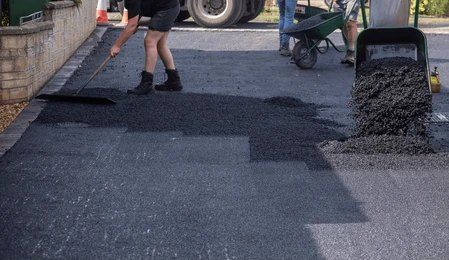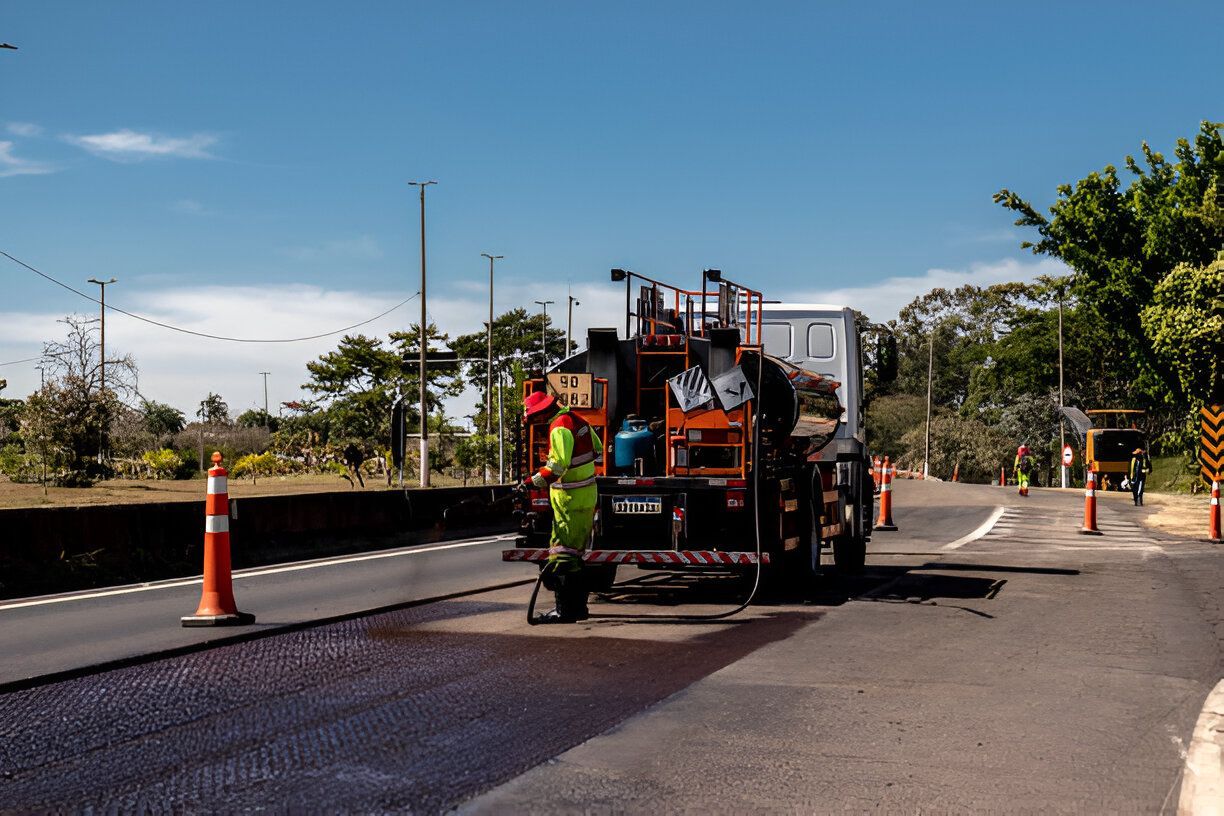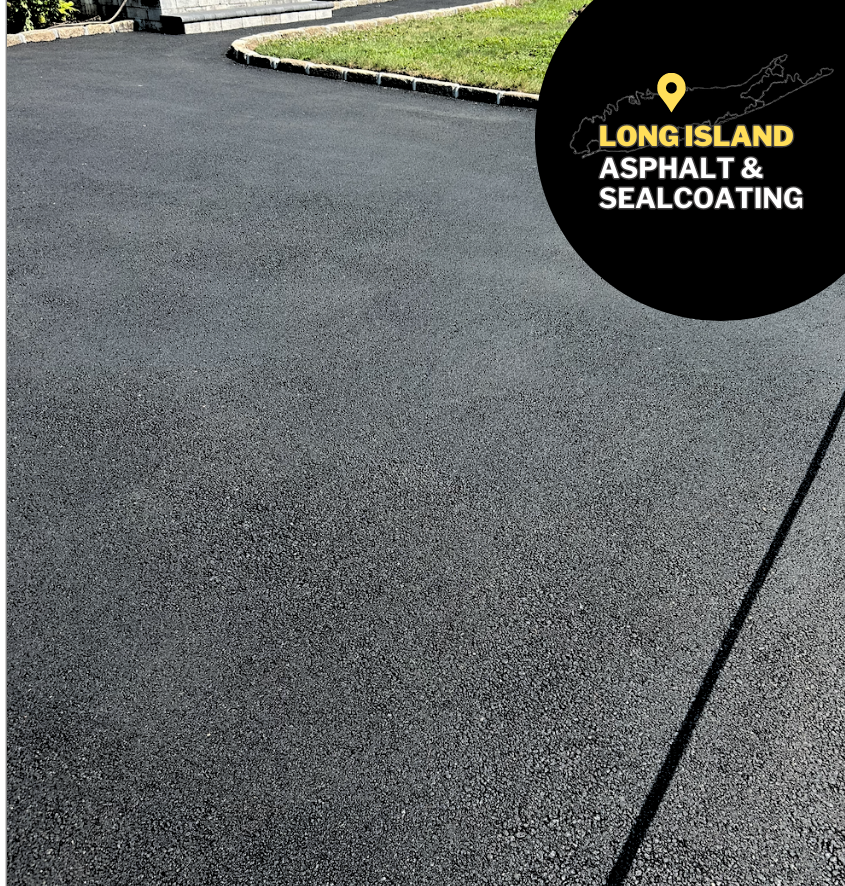How to Extend the Life of Your Asphalt Driveway: A Guide for Long Island Homeowners
Long Island Asphalt Driveway Care
Your asphalt driveway is a major investment, and like any investment, it needs protection and care to remain in the best condition possible. Without proper maintenance, an asphalt driveway can start to deteriorate quickly, leading to cracks, potholes, and costly repairs. Long Island's unique weather conditions, including its freeze-thaw cycle, and hot summer sun, can accelerate this wear and tear. However, with the right steps, you can extend the life of your asphalt driveway by many years.
Here's how to do it:
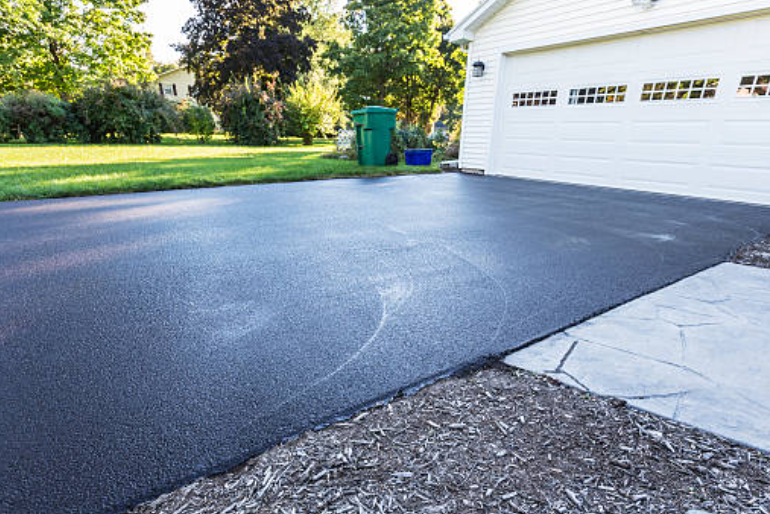
#1: Asphalt Sealcoating: The Best Preventative Measure
Sealcoating is by far the most effective way to preserve your asphalt driveway. A protective layer of sealant is applied over the surface of the driveway,
acting as a barrier against moisture, UV rays, chemicals like oil and gasoline, and even the effects of weather.
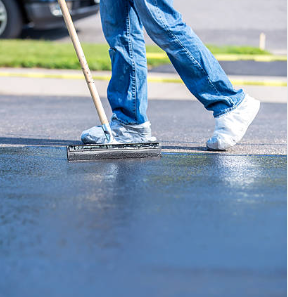
Why Sealcoating Works:
- Moisture Protection: When water seeps into cracks in unsealed asphalt, it penetrates down to the base layers. During Long Island’s winter, freezing and thawing causes the trapped water to expand and contract, worsening cracks and leading to potholes.
- UV Damage: Sunlight breaks down the binders in asphalt over time, leading to oxidation. This causes the surface to become brittle and prone to cracking. Sealcoating slows this process by blocking UV rays.
- Chemical Resistance: Cars leaking oil, gasoline, and other fluids can soften and weaken the asphalt. Sealcoating provides an extra layer of defense, preventing these chemicals from penetrating the surface.
Statistics Back the Sealcoating Benefit:
Sealcoating has been shown to significantly extend the life of asphalt. Studies indicate that sealed asphalt driveways can remain in good condition for 30% to 50% longer than unsealed driveways. While an unsealed driveway might need major repairs after just 5 to 7 years, a well-maintained, sealed driveway can last 10 to 15 years or longer before major repairs are required.
Experts recommend sealcoating your driveway every 2 to 3 years, depending on usage and local conditions, to maximize its life span.
#2: Repair Cracks as Soon as They Appear
One of the most common reasons asphalt deteriorates is the presence of small cracks that are left untreated. Over time, these cracks expand and allow water to penetrate the sub-base of your driveway.
With Long Island’s freeze-thaw cycle, any water that seeps into cracks during the fall and winter months can freeze, expand, and make the cracks worse. This leads to larger gaps and potholes that require more expensive repairs.
To prevent this, it’s crucial to regularly inspect your driveway for any signs of cracking and to fill them promptly. Crack-filling products are available for DIY repairs, or you can call in a professional for larger or more severe cracks.

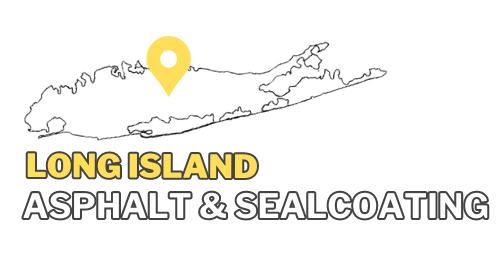
#3: Keep Your Driveway Clean
A clean driveway is a long-lasting driveway. Regularly sweeping and washing your asphalt can prevent debris, dirt, and chemicals from deteriorating the surface.
Why it’s important:
- Chemical Spills: Oil, gasoline, and antifreeze from vehicles are harmful to asphalt, causing it to weaken over time. If you notice any spills, clean them up right away to avoid damage.
- Debris and Dirt: Leaves, dirt, and other debris can trap moisture against the asphalt, accelerating wear. Keeping your driveway free of debris helps it dry out after rain and reduces the risk of cracks forming due to standing water.
Power washing your driveway once or twice a year can help keep it in top condition.
#4: Avoid Excessive Weight on the Surface
Asphalt is a flexible material, but it can still be damaged by excessive weight, especially when the underlying foundation is compromised. Heavy vehicles like trucks or trailers, or even large construction equipment, can cause depressions or cracks to form in your driveway. We have handled many asphalt repair jobs caused by heavy equipment left on driveways!
If you need to park heavy vehicles on your driveway for an extended period, try to distribute the weight by using plywood or another material to spread the load.
#5: Protect Against Long Island’s Harsh Weather
Long Island’s weather presents a unique challenge for asphalt driveways. We are so lucky to experience the change of seasons, but extreme weather adds to the wear and tear of our Long Island asphalt surfaces. The temperature fluctuations between winter and summer, coupled with coastal conditions, accelerate damage.
Freeze-Thaw Cycles:
During winter, moisture trapped in cracks and the surface of the driveway freezes and expands. This cycle of freezing and thawing can worsen existing cracks and create new ones. Sealcoating provides a barrier against moisture, but regular inspections and prompt crack filling are essential.
De-icing Salt:
Many homeowners use de-icing salts during the winter to prevent slippery conditions. However, these salts can cause significant damage to asphalt by accelerating the breakdown of its surface. While sealcoating helps to resist this damage, it’s wise to limit the use of salt where possible or use salt alternatives like sand or kitty litter.
Hot Sun and UV Rays:
Long Island’s summer sun can cause asphalt to soften and crack over time. The UV rays from the sun oxidize the asphalt, making it brittle. Sealcoating blocks UV rays, preventing this breakdown and helping the asphalt stay flexible and resistant to cracking.
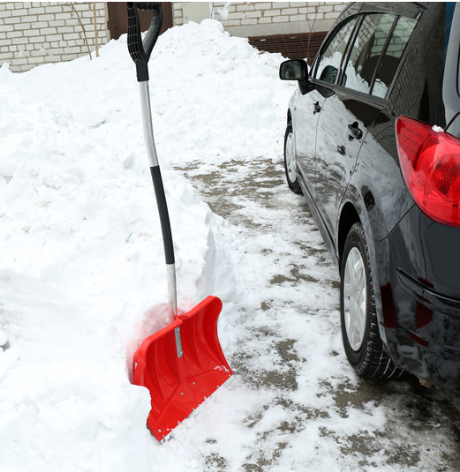
#6: Professional Inspections and Routine Maintenance
Having a professional inspect your driveway every few years can help catch problems before they become major issues. An expert can identify early signs of wear, such as surface cracks or drainage problems, that might not be obvious to the average homeowner.
If you notice standing water on your driveway after it rains, this could be a sign of poor drainage, which can lead to erosion of the underlying base. Addressing this issue early can prevent significant damage and extend the life of your driveway.
You can call the experts at Long Island Asphalt & Sealcoating to make sure your asphalt is in tip-top shape.
Final Thoughts on Asphalt Driveway Care
Asphalt driveways can last for decades with proper care, but without regular maintenance, they can quickly deteriorate. In Long Island, where the weather plays a major role in asphalt wear and tear, taking preventative steps like sealcoating, cleaning, and repairing cracks can help your driveway withstand the elements and remain in excellent condition for years to come.
Sealcoating is the most effective measure to extend the life of your driveway, providing up to 50% longer life compared to unsealed asphalt. By protecting your driveway against moisture, UV damage, and chemical spills, sealcoating keeps your asphalt strong and durable, ensuring your investment lasts.
